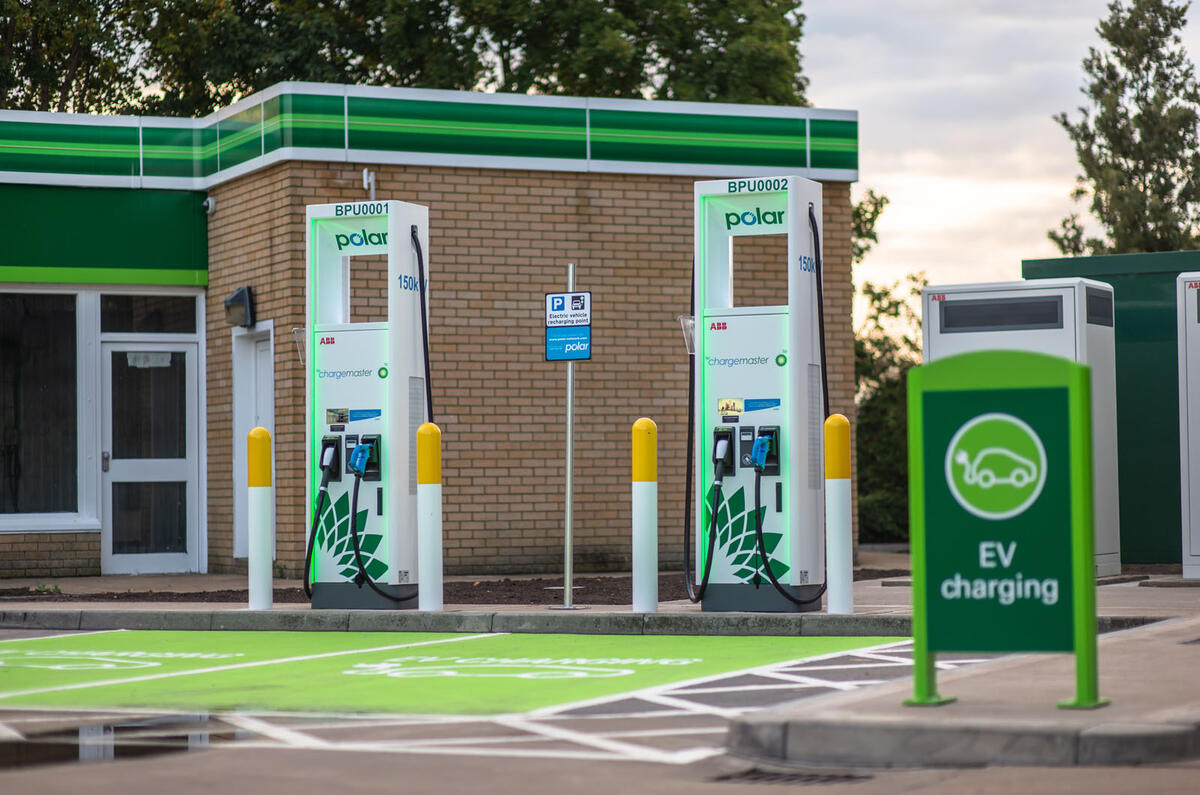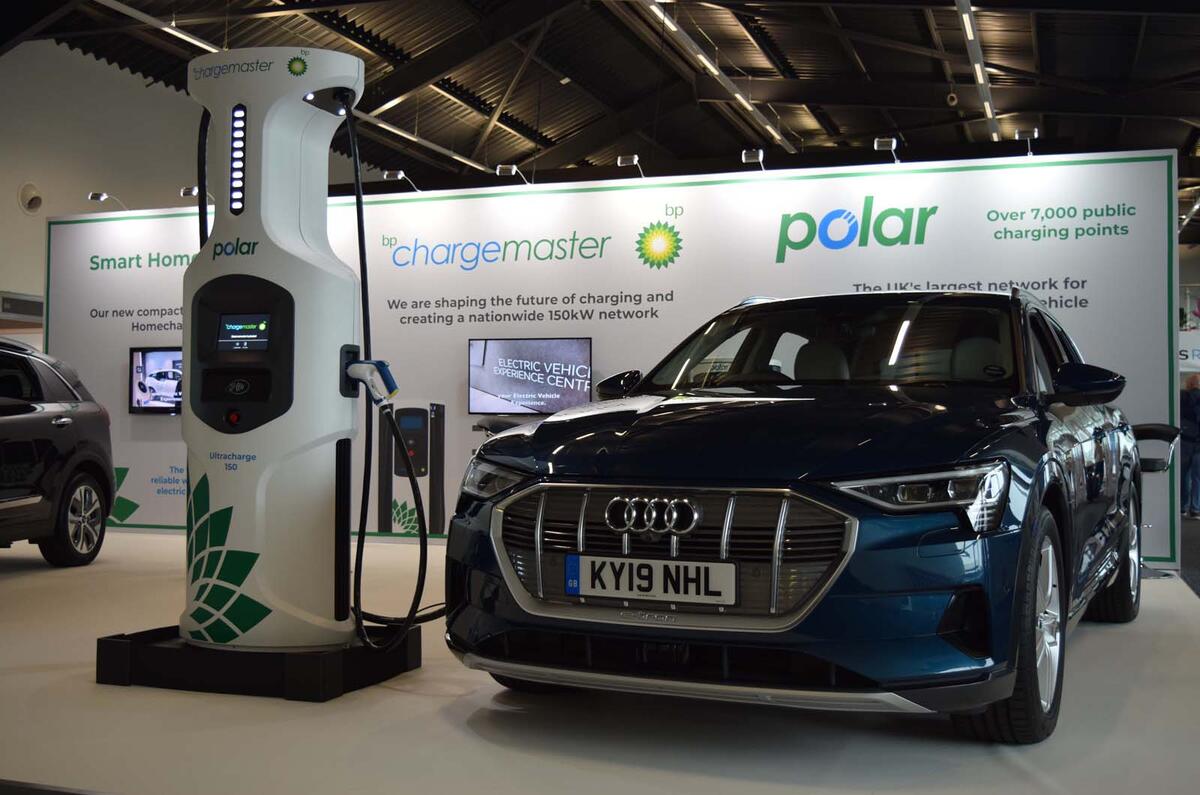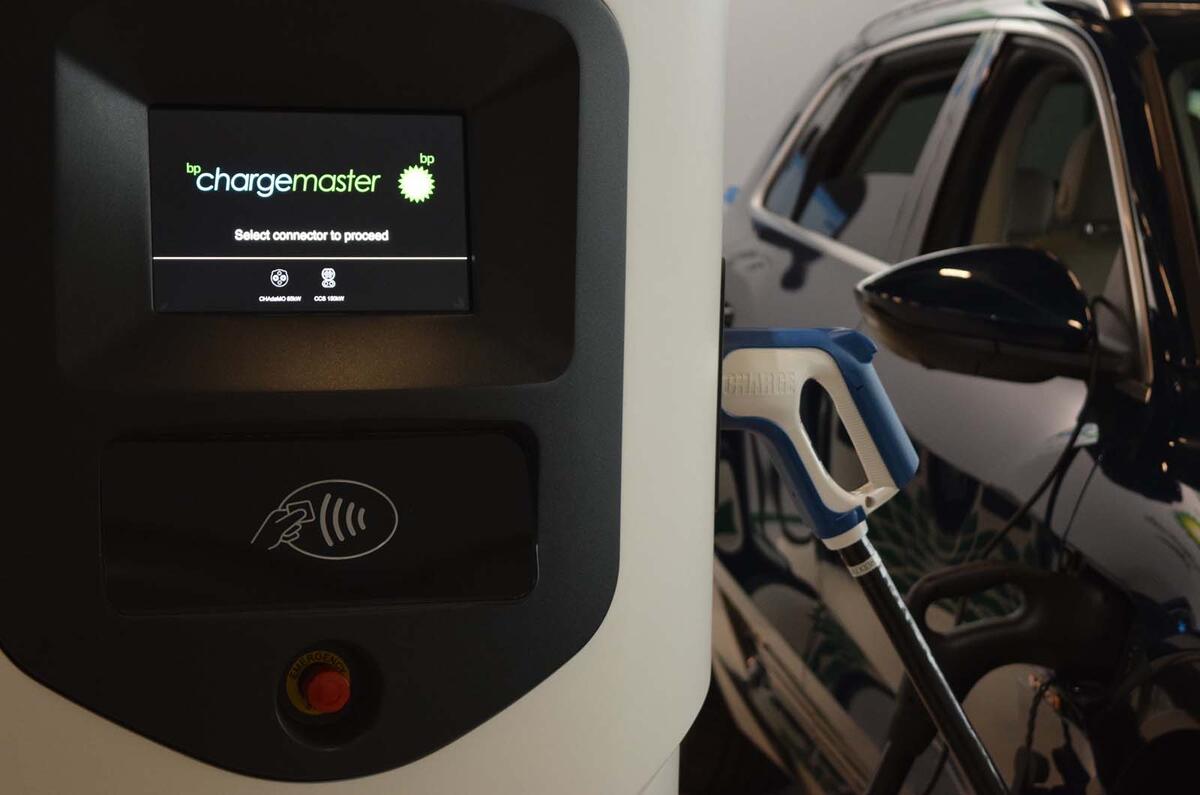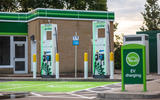BP Chargemaster, the UK’s largest electric car charge point provider, has switched on the first of its new Ultracharge 150kW EV chargers at a London fuel station.
Two charging points are now in operation at BP's Cranford fuel station near London Heathrow airport - the first in a planned roll-out of 400 ultra-fast charging points by 2021, which include 100 units at 50 sites by the end of 2019.
Unveiled in June at Silverstone, the new Ultracharge 150 is the first such unit to be built in the UK and will allow EVs to charge at their maximum rated speed.
It is claimed the charger will deliver around 100 miles of range in 10 minutes, which approaches the 75 miles per five minutes offered by Tesla's third-generation Supercharger, revealed in March. The Californian maker's new unit is capable of splitting 1MW of power between four cars, for a 250kW charging rate per car.
The new Ultracharger 150 features both CCS and Chademo connectors, making it compatible with the majority of EVs on UK roads. Customers can either subscribe to the service for regular use, or pay by the hour.
The chargers will be part of the Polar network, which is made up of more than 6500 public charging points across the UK.
The roll-out will help future-proof the UK’s charging network, as currently very few EVs are capable of charging at 150kW. Audi’s Audi E-tron is one such EV and its 95kWh battery can be charged to 80% in around 30 minutes.
Tufan Erginbilgic – CEO of BP’s product and service-led arm, Downstream – said: "As the world of mobility evolves, BP is determined to be the fuel provider of choice whether drivers need electric charging or liquid fuels.
"BP Chargemaster continues to develop and is leading the way for our understanding of how we can best support and succeed in this fast-growing new market."
The current network of ‘rapid’ chargers are mostly capable of a 50kW charge rate, while Tesla’s current Superchargers are capable of charging at up to 120kW.
Companies such as Pod Point, Fastned and Ionity all claim to be rolling out chargers capable of supplying power at 150kW and above, but there’s currently only a handful that are operational in the UK. BP Chargemaster’s announcement is the biggest commitment so far.
The development of the UK’s charging infrastructure is seen as one of the most crucial factors to enable the UK to meet climate change targets, including its promise to end the sale of conventional petrol and diesel cars by 2040.
In 2018, London-based Pod Point announced it would be installing the UK's first 150kW chargers, claiming that its intelligent smart-charging technology would be able to cope with high levels of demand without placing too much strain on the electricity supply. So far, however, it appears that Pod Point is yet to install and open one of these chargers.















Join the debate
Add your comment
I would pay twice as much for
Who’s leading the race on electric vehicles?
https://www.coventrytelegraph.net/news/coventry-news/electric-stories-16722861
Speed depends of battery size
Also worth mentioning, the reason some cars can charge faster than others is principally (although not entirely) down to the size of the battery. A larger battery can take more charge than a smaller one. The other factors are voltage and cooling. The upcoming 800v (vs 400v) systems will charge faster, as the currents are lower, and cars with more effective battery cooling systems will be able to push the cells harder during charging.